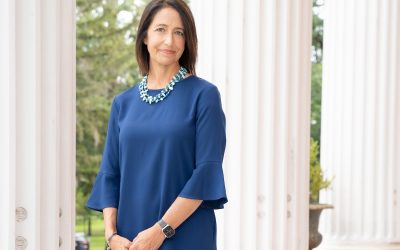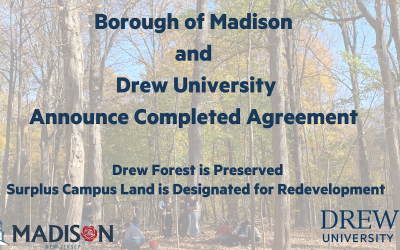The Rev. Dr. Jason Coker T’09,’13 named a visionary leader to reimagine the future of rural America
January 2022 – The Rev. Dr. Jason Coker T’09,’13 has been named a member of the inaugural Field Trips to the Future Cohort. Of nearly 160 nominees, Coker is one of 30 selected to lead the cohort.
The primary goal of the cohort is to infuse and strengthen the influence of future-oriented thinking with those working to ensure that communities and Native nations across the rural US are healthy places where everyone belongs, lives with dignity, and thrives.
Coker is the president of Together for Hope, a rural development coalition that fights poverty in the 301 counties of persistent rural poverty through asset-based community development.
Read on to learn more about the cohort, Together for Hope, and how Drew Theological School prepared Coker to become a community leader.
Tell us about the Field Trips to the Future Cohorts.
Field Trips to the Future is designed by the Robert Wood Johnson Foundation to provide a select group of rural leaders throughout the US with a network of transformation. We will be learning about futurism and how we can use that mental framework for change in the rural US. We meet monthly—once in the large group and once in a smaller group called Masterminds. The purpose is to gather the best minds and practitioners in rural space to reimagine the future of rural America and develop a plan to create that change.
There is a wide variety of expertise from the 30 individuals chosen to participate, including technology access, advocacy, policy, banking, nonprofit, investment, and journalism, just to name a few.
What does it mean to you to reimagine the future of rural America?
My entire job at Together for Hope is to reimagine a future of rural America that is thriving. Our four priorities of hope are education, health and nutrition, housing and environment, and social enterprise.
How do we move from persistent rural poverty to a thriving society? This is literally a challenge of the imagination. How can we create social imagination, political imagination, economic imagination, and even religious imagination? So much of our challenge in the rural US is an eroded social fabric, or a social fabric that has been knitted together with inequality and inequity. Working with local leaders to foster healthy social space through asset-based community development is one of our first steps when engaging a new community.
How has your work at Together for Hope, coupled with your education at Drew Theological School, prepared you for this project?
Drew Theological School introduced me to postcolonial theory and many other modern reading strategies—helping me to focus on power dynamics in biblical texts and understand that no “reading” of the Bible is objective, innocent, and unbiased. This way of reading has a strong emphasis on the ethics of reading and asks who benefits and who does not in any given interpretation. Having grown up in abject poverty, these types of readings were particularly important because they answered the biting question of “so what?” Using the Bible as a means of liberation and holding that in tension with how the Bible has been used to oppress helps me be honest and hopeful.
View this documentary film for more information on Together for Hope’s work in the Mississippi Delta.


